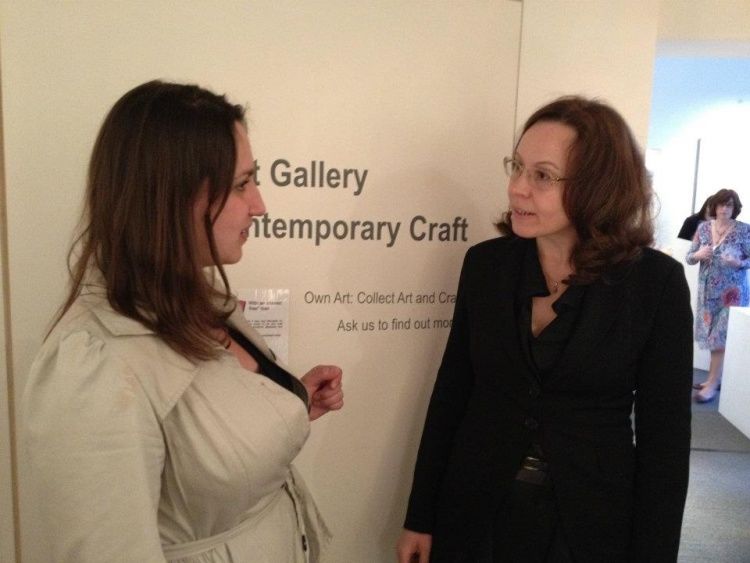Ajouté le 15 janv. 2012
"Mull it over", Group Art Exhibition, Brighton,United Kingdom
"Mull it over",group exhibition Brighton,United Kingdom,
2012-01-12 to 2012-01-18.
Koraljka Alavanja, Zadar, 2012
Oksana Veber paintings.
Every one of us longs for peace, equivalence and harmony, and turns to different sources in order to come close to this – sources such as natural beauties, meditation, exploration of spirit or sound. The painter Oksana Veber finds her peace in the beauty of landscape, still nature, portrait of a woman, which, transfused into a harmony of colours and shapes, continue their life as an inspiration for a work of art. Guided by this urge for equivalence and investigating themes such as peace, harmony and emptiness, the artist explored Taoism and eastern philosophy and transferred her longing and revelation onto the canvas. The echoes of these influences can be recognized primarily in the painting approach that the artist uses to create background for her figures, defined only by colouristic effects.
In her earlier works the colours are expressive and powerful, then they slowly mellow down into pastel shades of blue-gray and ochre in gradations, only to almost disappear into monochrome of warm nuances of gray infiltrated by whiteness as a light effect in her most recent cycle. Colours applied in wide brushstrokes and unobtrusively combine merging into an abstraction, which, in some paintings, could stand as a complete work of art in the manner of abstract Expressionism. On this background, the artist draws figuration using thin, playful, almost calligraphic black strokes that gives sparkle to the background's meditative peacefulness and opens space for a new story.
In most of her paintings, female portrait occurs as the main motif. It presented as a melancholic yet sensual figure with full lips, almond-shaped eyes looking down, head gently leaning, trapped in her dreamy, fairytale world. On one hand this secrecy is owed to the poetics that can be traced in Jugendstil or Vienna Seccession, and on the other to the Russian fantasy that we find in Chagall for instance. In her new cycle of works we are often find double or multiple portraits in one painting, but the figures do not communicate with each other, nor with the viewer neither by gesture nor by gaze; instead they open paths towards themselves by subtly communicating with the object of their attention – usually a musical instrument or a cat, a bird, a bowl with fruit. These also appear as the main motif, painted contourly by the same quick, skillful strokes of black line, with only some of the elements emphasized by colour.
Moreover, in this exhibition the artist presents several of her landscapes. "Los Cristianos" is a powerful painting, painted in shades of brown with sharp, confronting strokes, as if it originated in the English Impressionism, while the other two are much more peaceful, with bluish tones and softer brushstrokes, evoking with their style the French Impressionism.
From her first paintings until today, the artist has evolved her work using the same philosophical outlook and with the same motivation, changing it in style and exploring the painting medium by combining the influences of different art periods that she successfully adjusts to her own spirit and inspiration found within.
2012 Koraljka Alavanja
